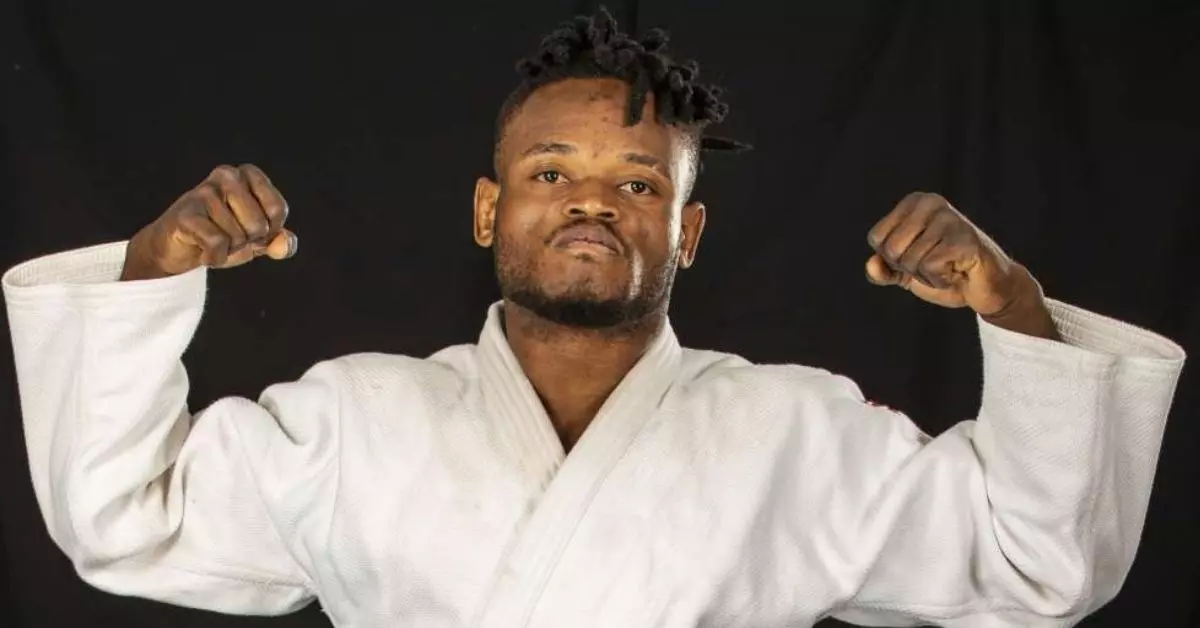Tokyo 2020
Meet Popole Misenga, the Tokyo-bound refugee judoka who beat Avtar Singh in Rio Olympics
Popole Misenga had a decent outing in Rio, earning a bye in his first round before showing the exit door to India's Avatar Singh during the round of 32 in Men's -90kg weight division.

Popole Misenga (Source: International Judo Federation)
The 2016 Games at Rio de Janeiro was the first time that refugees from across the world were allowed to participate in the Olympics. A total of ten refugee athletes competed in three different sports as the Refugee Olympic Team (EOR) under the Olympic flag.
Although none of the ten athletes managed to earn a podium finish in Brazil, all of them were successful in leaving a mark at the Olympics.
Amongst the ten athletes who represented EOR at the Olympics lies the name of Popole Misenga – a judoka. Misenga had a decent outing in Rio, earning a bye in his first round before showing the exit door to India's Avatar Singh during the round of 32 in Men's -90kg weight division. He then lost in the round of 16 to South Korea's Gwak Dong-Han to crash out of the Olympics.
Even though Misenga will be in action yet again for the EOR at the 2020 Tokyo Olympics, it is the story of his life that stands out. It surely makes one question how can a human being suffer so much and yet bounce back and succeed as if nothing happened.
Popole Misenga was born on 25th February 1992 in Bukavu – one of the most severely affected areas during the civil war of the Democratic Republic of Congo from 1998 to 2002.
Misenga had a normal childhood, until the day his mother was murdered sometime in the year 2001 during the war when he was just nine years old. This is when the nightmarish life started for him.
After his mother's murder, Misenga escaped into a nearby rainforest and spent almost a week wandering alone in the jungle. He was soon rescued from the forest and enrolled into a child displacement home in the city of Kinshasa.
It was in this child displacement home that Misenga took up judo and fell in love with it. He soon rose through the ranks and went on to win the bronze medal at the African U-20 Judo Championships for Congo.
How did Popole Misenga turn refugee?
In the year 2013, Misenga, along with fellow countrywoman Yolande Mabika, travelled to Brazil for the Judo World Championships. Here, the pair was locked inside a hotel room by their coaches while they left with all the money and passports.
They were locked inside the room for almost two days before Mabika somehow managed to escape, while Misenga was stuck inside the room for few more days.
The incident came to light only on the day of the tournament when the hotel staff reached the room due to the smell of alcohol. Misenga was recused, and Mabika arrived back at the hotel a day later.
She somehow convinced Misenga to take the help of a local African, who took them to a neighbourhood dominated by people from Africa.
The duo later went on to claim that their coaches used to lock them in cages without food if they failed to perform well in tournaments back home in Africa.
Following this incident, Misenga sought political asylum in Brazil, and the United Nations High Commission for Refugees (UNHCR) granted both him and Mabika the status of refugees in 2014.
Misenga has since married a Brazilian woman and is settled in the country with a son.
While both Popole Misenga and Yolande Mabika competed under the Olympic flag during the 2016 Rio Games, only the former will be in action when the world's greatest sporting spectacle kicks off on 23rd July 2021 at Tokyo.
